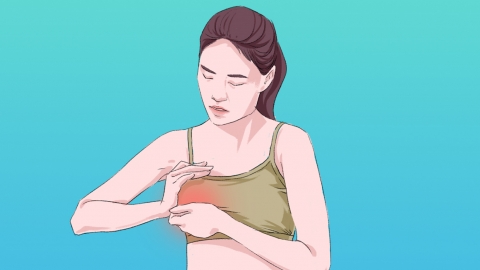It has been four months since my breast augmentation with implants, and my breasts have become hard. What should I do?
Breast augmentation with implants is a common cosmetic surgery that uses the shape and size of implants to fill in missing or insufficient breast tissue, achieving a breast enhancement effect. The general reference price for implant breast augmentation ranges from 8,000 to 20,000 yuan per session, with visible improvement typically occurring 1-3 months post-procedure. However, potential complications may include infection and implant displacement. Generally speaking, if the breasts feel hard four months after implant surgery, this may be caused by physiological factors, improper surgical technique or postoperative care, low-quality implants, infection, or scar tissue formation. It is recommended to visit a reputable hospital and follow a physician's guidance for improvement through general treatment, medication, or other methods. Detailed analysis is as follows:

1. Physiological phenomenon: In the early stages after breast augmentation, some discomfort, such as stiffness, may occur in the chest area. This is a normal physiological phenomenon that usually subsides naturally over time. At this stage, following the doctor's advice on postoperative care and maintenance while waiting for symptoms to resolve naturally is recommended.
2. Improper surgical technique or postoperative care: If the pocket created during surgery is too small or adequate and effective massage is not performed after surgery, the implant may lack sufficient mobility within the body, possibly leading to breast stiffness. It is recommended to follow a physician's guidance for correction and to perform appropriate and effective massage techniques to help restore normal breast texture.
3. Low-quality implants: Using substandard implants during breast augmentation may lead to breast hardening after long-term use. It is advised to have the low-quality implants removed under a physician's guidance and replaced with compliant implants.
4. Infection: If the wound comes into contact with water or sustains trauma, it may become infected, causing breast stiffness along with symptoms such as fever and redness or swelling. Treatment may involve the use of antibiotics such as fusidic acid cream, compound polymyxin B ointment, or roxithromycin tablets, following medical advice.
5. Scar tissue: If proper postoperative care is not performed, scar tissue may form at the wound site, potentially leading to breast hardness or lumps. It is recommended to follow a physician's instructions and use medications such as mucopolysaccharide polysulfate cream, recombinant human basic fibroblast growth factor gel, or asiaticoside cream. Application should be combined with appropriate massage techniques to enhance drug absorption and aid in the recovery of scar tissue.
During the recovery period, proper breast hygiene and care are essential. Excessive breast massage should be avoided, and wearing overly tight undergarments should be prevented to avoid worsening breast discomfort.




